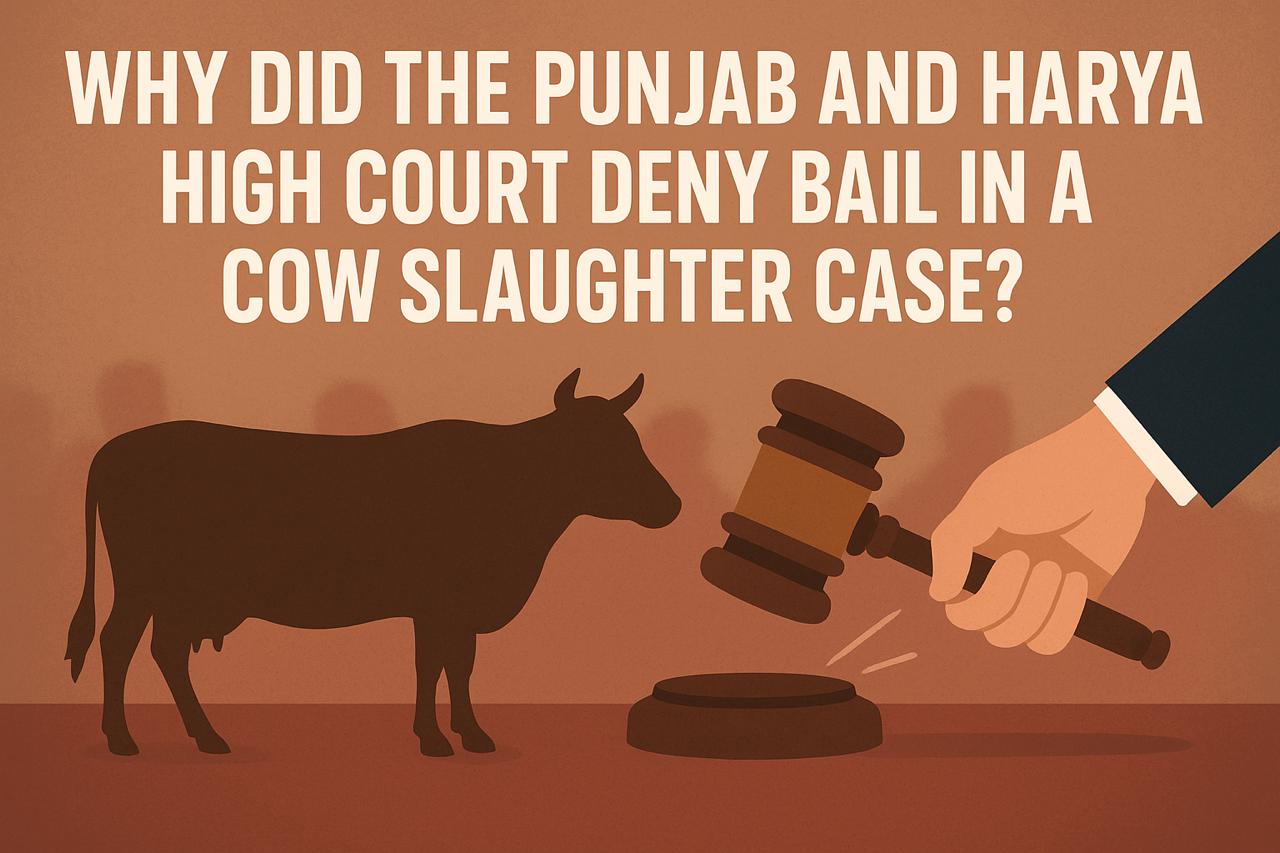Introduction
The Punjab and Haryana High Court has recently made headlines after it refused anticipatory bail to Aasif, a man accused of being involved in cow slaughter. Justice Sandeep Moudgil, who presided over the case, didn’t just see this as a violation of the law he stressed that cow slaughter carries a special emotional and cultural weight in India.
Case background in the Punjab and Haryana High Court cow slaughter order
The police intercepted Aasif after getting a tip-off that two cows, allegedly on their way from Haryana to Rajasthan for slaughter, were being transported in poor condition, with tools suggesting what was about to happen. While one co-accused got bail earlier, the judge found Aasif’s situation was different: he had been booked before, under similar cases. That record convinced the Court that this wasn’t a one-off Aasif was described as a repeat offender who hadn’t learned from past bail concessions.
Judicial reasoning in the Punjab and Haryana High Court cow slaughter order
Rejecting the plea, Justice Moudgil remarked: “The right to bail is not to be confused with the right to impunity.” The Court observed that anticipatory bail is a discretionary safeguard aimed at protecting innocents from arbitrary arrest not a refuge for habitual offenders.
Citing Lavesh v. State (NCT of Delhi) (2012) 8 SCC 730, the Court stressed that those with criminal antecedents cannot demand anticipatory bail as a matter of right. The High Court didn’t just focus on the technicalities it openly called out how earlier grants of bail had been wasted, hinting that letting the accused go free again would be an act of misplaced trust. According to the bench, this wasn’t just a routine legal matter; cow slaughter, here, stirred up powerful emotions and cultural sensitivities. As Justice Moudgil made clear, India’s diversity means that some acts—however private they might seem can quickly take on a much wider significance. If those actions touch beliefs that are deeply valued by a significant part of society, the court warned, the fallout can spill into the public domain and disturb the peace.
Cultural and constitutional context in the Punjab and Haryana High Court cow slaughter order
Justice Sandeep Moudgil quoted past Supreme Court cases especially the 2005 ruling in State of Gujarat v. Mirzapur Moti Kureshi Kassab Jamat to back up the idea that bans on cow slaughter aren’t just allowed; they’re woven into the country’s agrarian and moral framework. In his words, the cow stands out in India not only as a sacred animal but also as a staple of rural life and farming.
Justice Moudgil added that while each person’s individual rights matter, they can’t be stretched to cover acts that seriously upset social harmony especially if those actions go against beliefs that are deeply held by many in the community. Put simply: where repeated breaches of tradition collide with peace and order, the law has to step in.
Conclusion
To sum up, the Court made it plain: freedom matters, but it doesn’t give anyone a pass to break the same law over and over especially when the issue involved is woven deep into India’s moral and cultural fabric. By saying no to bail, the judge wasn’t just passing judgment on one man; he was also underlining how the role of the cow stays central both in law and daily life. The message is clear: judicial protections exist to help the genuinely innocent, not to offer repeat offenders a way out.
Author Information:
By Karthikeyan Ganesan, a law student from KKC College of Law, reporting on law and technology for Nyayasphere. Karthikeyan always likes to stay updated with current trends and important information regarding the law and cases across the country.

